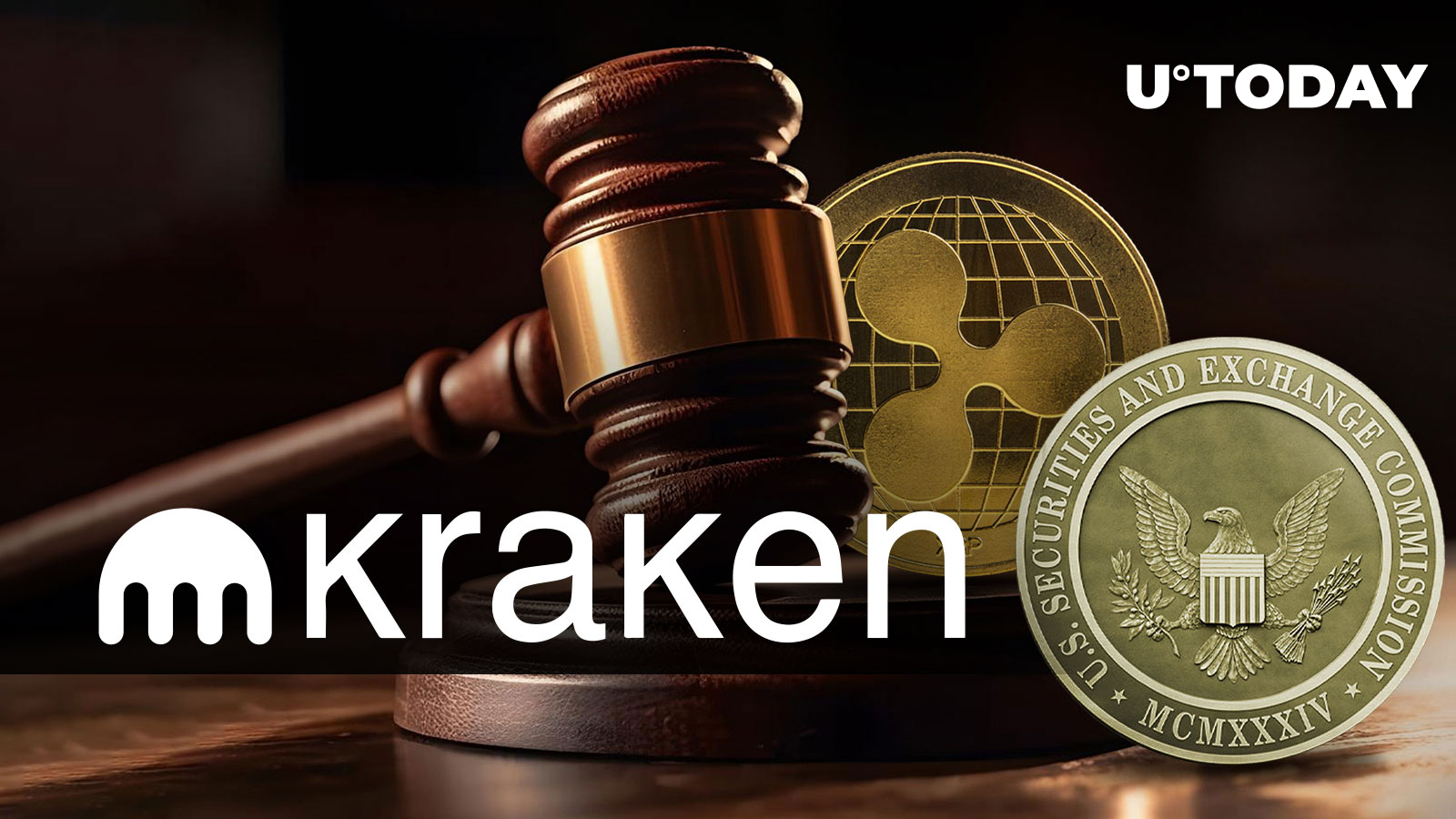[ad_1]
The U.S. Securities and Exchange Commission (SEC) appears to be adopting a more cautious approach in its legal actions against cryptocurrency firms. This observation, which was pointed out by legal expert Mike Selig, comes in the wake of the SEC filing a lawsuit against the cryptocurrency exchange Kraken.
Selig suggests that the SEC, possibly concerned about the outcomes of future crypto-related cases, is now strategically involving multiple district courts to assess the security status of crypto secondary sales. This move could ultimately lead to a Supreme Court decision.
The SEC’s new lawsuit against Kraken
As reported by U.Today, popular cryptocurrencies Cardano (ADA) and Solana (SOL) have been categorized as securities by the commission in its lawsuit.
Notably, XRP, the digital asset at the center of Ripple’s recent legal battle with the SEC, is not listed among the alleged securities in the Kraken lawsuit.
Despite the lawsuit, Kraken maintains its commitment to its mission and its clients, both in the U.S. and globally, ensuring that its current services remain unaffected.
Kraken CEO Dave Ripley has responded strongly to the SEC’s claims, arguing that Kraken does not list securities and pointing out the lack of clear regulatory guidelines for crypto exchanges. Ripley’s statement emphasizes the need for Congressional action to clear the regulatory fog surrounding cryptocurrencies in the U.S.
Losing sight of investor protection?
In a recent CNBC interview, Brad Garlinghouse, the CEO of Ripple, has criticized the SEC for deviating from its mission to protect investors.
Speaking at the Ripple Swell event in Dubai, Garlinghouse expressed concern over the SEC’s approach to regulating cryptocurrencies.
He stressed the need for clear federal laws governing digital currencies, rather than relying on litigation to set precedents. This criticism comes after Ripple’s legal victory in July, where a judge ruled that XRP was not a security, a decision that has significantly influenced the current legal landscape for digital assets.
[ad_2]
Read More: u.today









 Bitcoin
Bitcoin  Ethereum
Ethereum  Tether
Tether  XRP
XRP  Solana
Solana  USDC
USDC  TRON
TRON  Dogecoin
Dogecoin  Lido Staked Ether
Lido Staked Ether  Cardano
Cardano  Wrapped Bitcoin
Wrapped Bitcoin  Hyperliquid
Hyperliquid  Wrapped stETH
Wrapped stETH  Bitcoin Cash
Bitcoin Cash  Sui
Sui  Chainlink
Chainlink  LEO Token
LEO Token  Avalanche
Avalanche  Stellar
Stellar  USDS
USDS  Toncoin
Toncoin  WhiteBIT Coin
WhiteBIT Coin  Shiba Inu
Shiba Inu  WETH
WETH  Litecoin
Litecoin  Wrapped eETH
Wrapped eETH  Binance Bridged USDT (BNB Smart Chain)
Binance Bridged USDT (BNB Smart Chain)  Hedera
Hedera  Monero
Monero  Bitget Token
Bitget Token  Ethena USDe
Ethena USDe  Polkadot
Polkadot  Coinbase Wrapped BTC
Coinbase Wrapped BTC  Uniswap
Uniswap  Pi Network
Pi Network  Pepe
Pepe  Aave
Aave  Dai
Dai  Ethena Staked USDe
Ethena Staked USDe  Aptos
Aptos  OKB
OKB  Bittensor
Bittensor  BlackRock USD Institutional Digital Liquidity Fund
BlackRock USD Institutional Digital Liquidity Fund  Jito Staked SOL
Jito Staked SOL  NEAR Protocol
NEAR Protocol  Internet Computer
Internet Computer  Cronos
Cronos  Ethereum Classic
Ethereum Classic  sUSDS
sUSDS